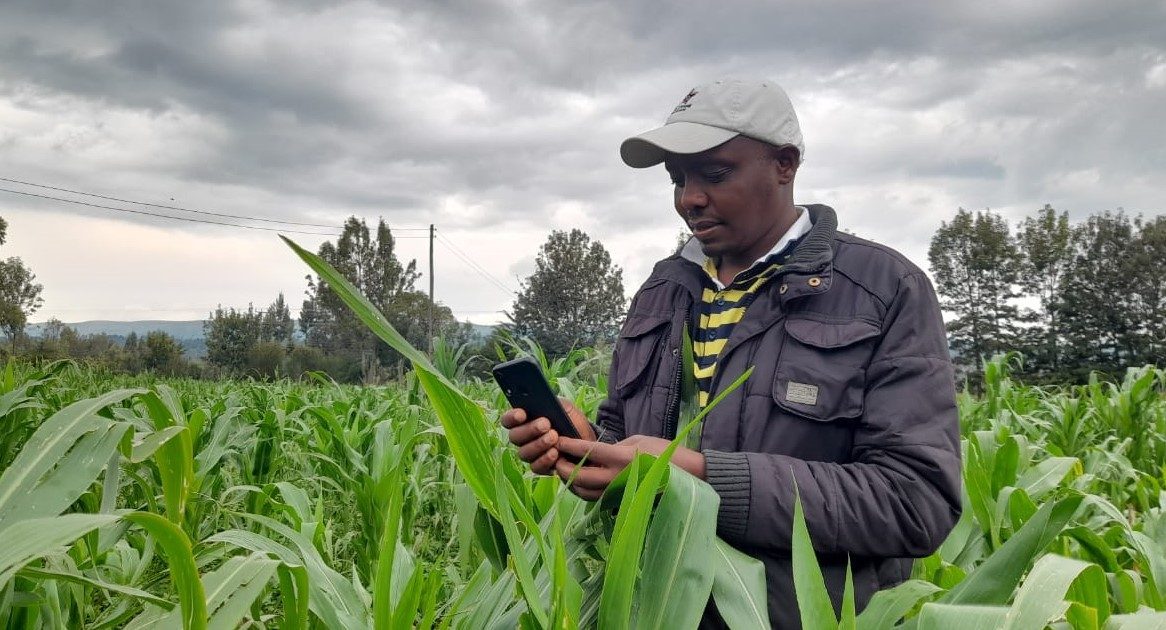Nakuru County Government in partnership with the Ministry of Agriculture and the Cooperative University of Kenya (CUK) has unveiled a digital platform to enable market their produce directly to clients.
The new platform will enable farmers list their products, their prices, contact information and location and the platform will facilitate buyers to browse the site for goods and produce they need.
According to Agriculture Secretary, State Department of Crops Mr Josphat Muhunyu, the Kenya Rural Transformation Centers Digital Platform Project (KRTCDP) will help farmers sell their products directly to customers and avoid middlemen who often buy their produce at throw-away prices and sell the same at a huge profit.
Muhunyu regretted that most farmers were swindled by middlemen despite working hard and using a lot of resources in farm inputs to eke a living.
“These farmers work very hard but get very little returns because of the brokers who take advantage of them. The platform will help minimize losses and exploitation, enabling farmers to reap the real benefit of their hard work,” stated Muhunyu.
The app can be downloaded from Google play store, after which a farmer can create an account and login in. They can then post on the platform the number of products they want to sell and their prices. They also provide location and their contact numbers.
The Agriculture Secretary indicated that the platform is also beneficial for buyers of farm produce where they will be able to contact the farmer on the ground through the number provided. Farmers, he added, would also have a wider scope of customers to their products, courtesy of the online platform.
Speaking at the County headquarters in Nakuru, Muhunyu said the App would spur competition, pushing farmers to produce high quality products because customers will have a variety of choices.
“The app will broaden the market for the farmers and the variety of products for the customers. This will create high competition, making farmers strive to produce high quality products. Our local markets will have quality goods,” he explained.
To ensure that users’ data is safeguarded, the Agriculture Secretary said the platform would adhere to the Kenyan Data Protection Act. The project is funded by the Fund for Africa Sector Assistance and the African Development Bank.
The government, Muhunyu noted, has ensured that every ministry and government institution had data and ICT departments and this was because young people are normally impatient and telling them to farm and wait for 8 years before they reap was not ideal, unlike using data platforms.
He added that the government was partnering with many players where there were platforms that youth would be exposed to on matters of data and also through conferences such as the Agri Africa that was being held to showcase what modern innovation technology could do.
Muhunyu further disclosed that the platform would also connect farmers with input suppliers, agro-dealers, buyers, and other service providers through farmers’ cooperatives.
“The platform will put farmers at the centre of a single electronic ‘ecosystem’ and connect them with all actors along the agricultural sector’s value chain,” he noted.
He said this would be done through the creation of a single point of convergence for all agro-sector stakeholders in Kenya, thereby connecting farmers with private sector actors and public sector services.
The project is a three-year initiative that will be implemented by the Cooperative University of Kenya in Nakuru, Baringo and Narok counties, with an initial focus on maize, Irish potatoes and dairy farming.
The Kenya Rural Transformation Centres Digital platform project is financially supported by the African Development Bank (AfDB), through the Fund for African Private Sector Assistance (FAPA).
The Secretary said the goal of the project was to increase productivity, profitability and sustainability of agricultural cooperatives, and to consequently impact the entire agriculture and food and trade value chains, spurring holistic growth across Kenya’s agricultural sector.
He said the project seeks to give value, incentivize, aggregate data and resources and accrue trust among players in the potato, dairy, maize and value chains.
The Agriculture emphasized the importance of research and innovation as a means to solve Kenyan challenges adding that research provides opportunities to develop resilient solutions to the challenges in addition to its remaining a key component to the development of any nation.
According to Coperative Uuniversity of Kenya Vice Chancellor Prof Kamau Ngamau the KRTCDP project was designed to enable smallholder farmers to connect to all critical players in the agricultural forward and backward value chains.
He said the platform would enable farmers to be more productive, earn higher incomes and, most importantly, create sustainability in their farming operations.
“They will have access to information that will empower their decision-making capacities. Aggregation of their produce will reduce post-harvest losses and empower farmers to have higher bargaining power. With the successful implementation of the project, the farmer wins,” the VC said.
He went on, “This project will be using the digital platform and digital centres where the young farmers can get information and see interest and opportunities in the agriculture sector”.
Prof Ngamau said there is a need to have aggregated data and confirmed that currently, the government was using KALRO as host to big data that is analysed and processed.
He said data keeping would be enhanced through multiple partners to enable individuals’ access to what they required.
The project, he added, is in line with the nation’s development plan, which is, to revive and make the agriculture sector profitable and sustainable for better livelihoods and the effort resonates very well with the aspirations of the new National Government’s Agriculture Sector Transformation and Growth Strategy (ASTGS) 2019-2029.
Prof. Ngamau indicated that the project would transform the way agriculture is done in the country through bringing resources, access to inputs and also bring in value addition and source markets for farmers.
He added that cooperatives would be the agents to implement the project considering there has been lack of information about markets and also post-harvest losses that have seen farmers losing almost 40 per cent of their products.
Prof Ngamau noted that through the transformation centres digital platform project that is designed to enable smallholder farmers to connect to all critical players in the agricultural forward and backward value chains, the shared farmers’ platform would be able to easily engage input suppliers, agro-dealers, financiers, insurance agencies, marketers and buyers, among other service providers, on a mobile phone platform.
He said the project and digital centres would also attract youth in agriculture and this would be a game changer that would also create jobs.
By Esther Mwangi and Angela Cherotich




